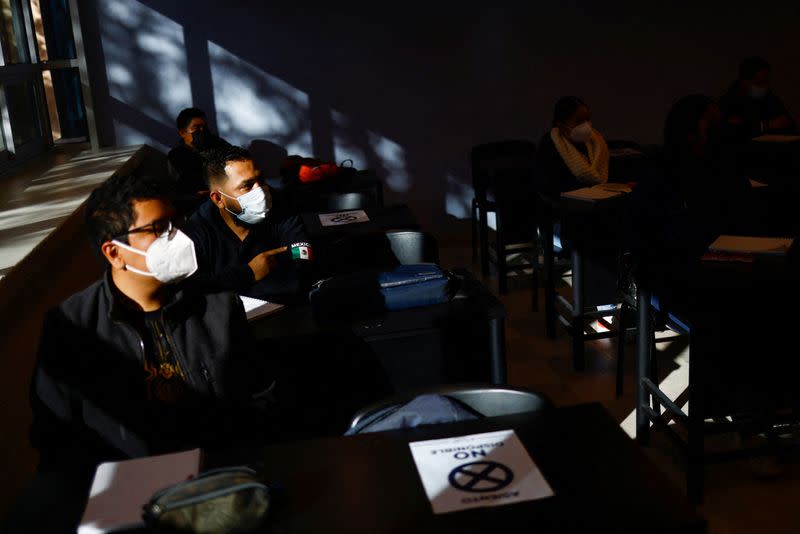What you need to know about the coronavirus right now

- Oops!Something went wrong.Please try again later.
(Reuters) - Here's what you need to know about the coronavirus right now:
China struggles to find exit from zero-COVID
China's "zero-COVID" stance has put it at odds with the rest of the world and is exacting a mounting economic toll, but an exit strategy remains elusive as authorities worry about the ability of the healthcare system to cope and adapt to new strains.
China is also wary of the risk of new variants, especially as it refuses to import foreign vaccines. Studies suggest China's vaccines are less effective against Omicron and it has not yet rolled out its own mRNA version.
Beijing city limits movement in more areas
Beijing has limited the movement of people in more parts of the Chinese capital, even as it reported fewer COVID-19 cases on Thursday, in a bid to lower virus risk less than 10 days before its hosting of the Winter Olympics Games.
Beijing has not locked down any districts, but several now have mobility restrictions in place in certain areas. Beijing reported five locally transmitted infections with confirmed symptoms for Wednesday, down from 14 a day earlier, according to data from the National Health Commission (NHC) on Thursday.
Expats head for the exit as Singapore's COVID controls bite
Risk-averse Singapore is trying to balance its approach to living with COVID - aiming to protect people in the densely populated island from the disease while reopening its economy and borders to maintain its reputation as a hub for capital and talent.
COVID has prompted soul-searching among many relatively affluent expats in Singapore, where foreign workers make up a fifth of the 5.5 million population. Some compare its strict COVID rules with more freedom back home or bemoan the inability to travel freely to visit family, while others joined the "great resignation" wave seen around the world.
COVID-19 cases at highest ever in Americas, says regional health agency
New cases of COVID-19 in the Americas in the past week have been the highest since the pandemic began in 2020 and the very contagious Omicron variant has clearly become the predominant strain, the Pan American Health Organization said on Wednesday.
The United States continues to have the highest number of new infections, although cases decreased by nearly one million over the last week, the regional health agency said. Mexico's southern states have seen new infections triple and Brazil has seen new cases surge 193% over the last seven days, PAHO said.
New PCR test can identify variants
A new type of PCR test can quickly tell which variant of the coronavirus is causing infection, helping doctors choose the most effective antibody treatments, researchers said. The new test uses special "probes" - fluorescently labeled molecules - called "sloppy molecular beacons" that glow in different colours when they attach themselves to DNA or RNA in the virus.
When the sample from the patient is heated, the probes fall off their DNA or RNA targets and their colour disappears. They fall off at different temperatures depending on the DNA or RNA sequence they were bound to. Because the variants each have some unique sequences, they can be identified based on the pattern of color changes at each temperature, explained Dr. David Alland of Rutgers New Jersey Medical School whose team reported their findings on Friday on medRxiv ahead of peer review.
(Compiled by Karishma Singh; Editing by Lincoln Feast.)

